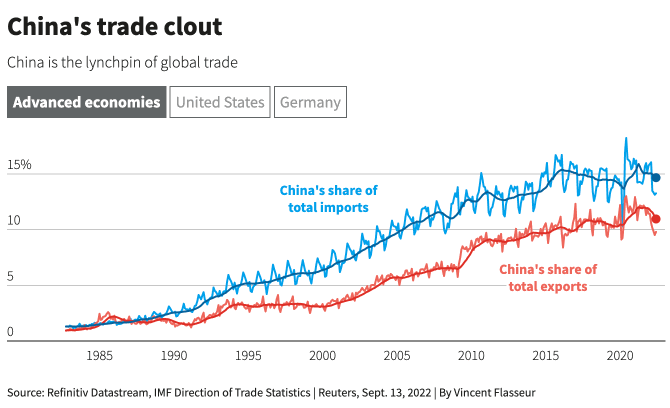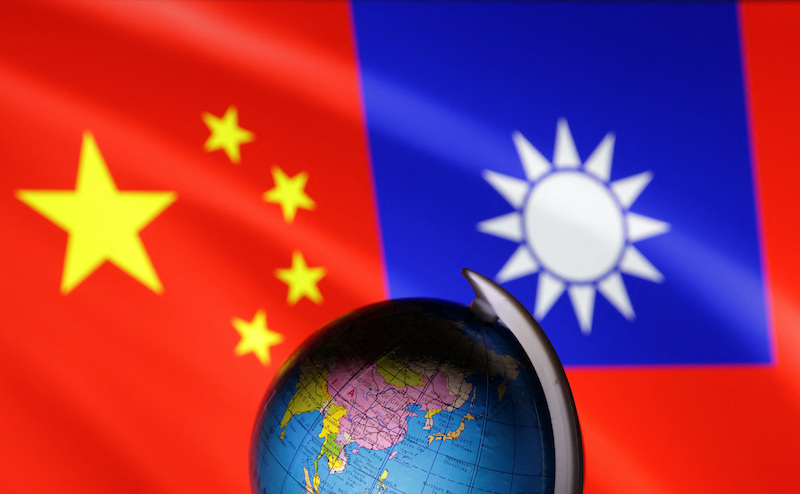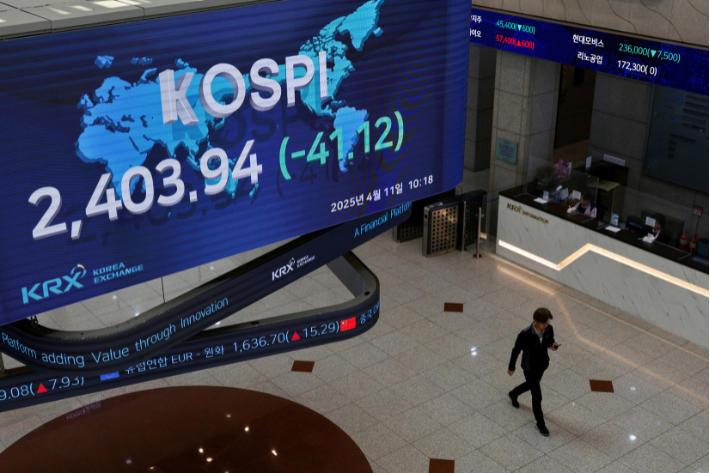The United States is considering a sanctions package against China to try to deter it from invading Taiwan, while Taipei has lobbied the European Union to do the same, sources have revealed.
But discussion in Washington and Taipei’s lobbying of EU envoys are both at an early stage – a response to fears of a Chinese invasion which have grown as military tensions escalate in the Taiwan Strait.
In both cases, the idea is to take sanctions beyond measures already taken in the West to restrict some trade and investment with China in sensitive technologies like computer chips and telecoms equipment.
The sources did not provide any details of what is being considered but the notion of sanctions on the world’s second-largest economy and one of the global supply chain’s biggest links raises questions of feasibility.
“The potential imposition of sanctions on China is a far more complex exercise than sanctions on Russia, given US and allies’ extensive entanglement with the Chinese economy,” Nazak Nikakhtar, a former senior US Commerce Department official, said.

China claims Taiwan as its own territory and last month fired missiles over the island and sailed warships across their unofficial sea frontier after US House of Representatives Speaker Nancy Pelosi visited Taipei for a short trip in early August that Beijing regarded as a provocation.
Chinese President Xi Jinping has vowed to reunify democratically-governed Taiwan with the mainland and has not ruled out the use of force. He is set to secure a third, five-year leadership term at a Communist Party congress next month.
In Washington, officials are considering options for a possible package of sanctions against China to deter Xi from attempting to invade Taiwan, according to a US official and an official from a country in close coordination with Washington.
US talks over sanctions began after Russia invaded Ukraine in February, but took on fresh urgency after the Chinese reaction to Pelosi’s visit, the two sources said.
The United States, backed by NATO allies, took a similar approach to Russia in January with a threat of unspecified sanctions but this failed to dissuade Russian President Vladimir Putin from launching his invasion of Ukraine.
The White House is focused on getting countries on the same page, including coordinating between Europe and Asia, and avoiding provoking Beijing, the non-US official said.
ALSO SEE: US to Ban Export of Chips, Chipmaking Tools to China
Focus on China’s Military
Details on what specific sanctions are under consideration has yet to be revealed, but some analysts suggested China’s military could be the focus.
“Big picture, initial sanctions conversations will likely revolve around curtailing China’s access to certain technologies required to sustain a military operation against Taiwan,” Craig Singleton, at the Foundation for Defense of Democracies, said.
The White House declined to comment.
Taiwan’s Foreign Ministry said it had discussed China’s recent war games and the “great challenges” China poses to Taiwan and the region with the United States, Europe and other like-minded partners, but could not disclose details.
China’s Foreign Ministry and the Chinese Embassy in Washington did not immediately respond to requests for comment.
Taiwan’s Calls for Sanctions Intensify
Taiwan had already broached sanctions with European officials after Russia’s invasion of Ukraine, but China’s recent military exercises have seen Taiwan’s position harden, six sources briefed on the Taiwan-Europe discussions said.
Top Taiwanese officials’ calls for sanctions preparations have intensified in recent weeks. A recent Chinese white paper, which withdrew a promise not to send troops or administrators to Taiwan if Beijing takes control of the island, has prompted a redoubling of their efforts with Europe.
Taiwan has not asked for anything specific, only for Europe to plan what actions it may take if China attacked, one source briefed on discussions said, and has asked Europe to warn China privately that it would face consequences.
EU officials have so far shied away from imposing tough sanctions on China over human rights issues, as the country plays a far bigger role for the bloc’s economy than Russia, said another person familiar with the matter.
European sanctions would require all 27 member countries to agree, which is often elusive; consensus was tough even in isolating Russia after its invasion of Ukraine, in part because its gas was critical for Germany.
All of Europe, excluding the Vatican, has formal diplomatic relations with Beijing but not Taipei, though Taiwanese and European officials have had extensive, private contacts since China’s military exercises began, the sources say.
Germany, the bloc’s economic engine, is “wary,” according to another official familiar with the discussion. “I don’t think the Russia-Ukraine has fundamentally changed the way they view their relationship with China.”
But there is growing concern in the German government over its economic dependence on China, with the economy minister pledging a new trade policy and “no more naivety” on Tuesday.
A spokesperson for German Chancellor Olaf Scholz declined to comment.
- Reuters with additional editing by Jim Pollard
ALSO SEE:
EU Eyes China in Push for Ban on Products of Forced Labour
US Orders Nvidia to Stop Sale of Advanced Chips to China
Germany Seen Reviewing Ways to Cut China Dependency
China Hits Taiwan With Economic Sanctions as Pelosi Visits























